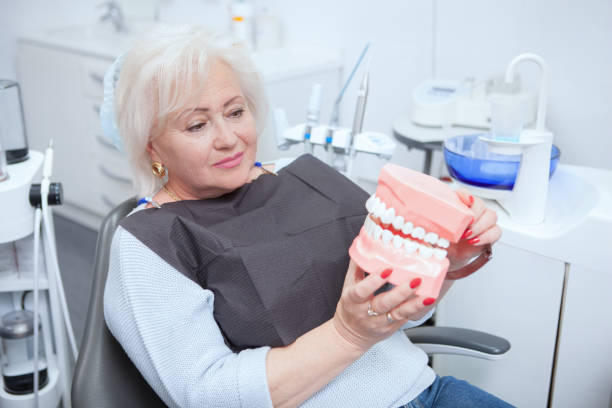Implant-supported dentures are an innovative solution for individuals who have lost multiple teeth and are looking for a stable, long-term replacement. Unlike traditional dentures that rest on the gums, implant dentures in Peoria are anchored to the jawbone using dental implants. This provides enhanced comfort, functionality, and aesthetics. While the results are transformative, the recovery process plays a critical role in ensuring the success of the procedure. Your skilled dentist will offer personalized guidance, but following general recovery tips can significantly enhance your healing and comfort.
Here are essential recovery tips for faster healing after dentures.
- Follow Post-Operative Instructions Carefully
Your dentist will provide specific instructions tailored to your case, including how to care for your mouth, what to avoid, and how to clean the surgical site. It’s essential to follow these guidelines meticulously. These instructions help prevent infection, reduce discomfort, and encourage faster healing. You may be advised to avoid rinsing your mouth vigorously, brushing near the surgical sites, or consuming hot beverages during the initial healing phase.
- Manage Swelling and Discomfort
Swelling and mild discomfort are normal after implant placement surgery. To minimize swelling, apply an ice pack to the outside of your cheek near the surgical site for 15–20 minute intervals during the first 24–48 hours. Over-the-counter pain relievers, such as ibuprofen, can help reduce pain and inflammation; however, only take the recommended dosage as advised by your dentist or oral surgeon.
- Stick to a Soft Diet
Eating the right foods is crucial for a smooth recovery. Stick to soft, nutritious foods that don’t require much chewing, such as mashed potatoes, yogurt, smoothies, oatmeal, scrambled eggs, and soups (let them cool first). Avoid hard, crunchy, spicy, or chewy foods for at least a week or as long as your dentist advises. Gradually reintroduce solid foods as you heal and become more comfortable.
- Maintain Oral Hygiene
Even though you’ve had dental surgery, it’s still important to keep your mouth clean. Brush your teeth gently, avoiding the surgical sites for the first few days. Your dentist may recommend a saltwater rinse or a specialized antimicrobial mouthwash to help reduce bacteria and promote oral health and healing. Keeping your mouth clean is essential to prevent infection and ensure your implants integrate well with your jawbone.
- Avoid Smoking and Alcohol
Smoking and alcohol consumption can impair healing and increase the risk of implant failure. Nicotine restricts blood flow to the gums and can interfere with the integration of the implant into the jawbone. Alcohol can also delay healing and increase the chance of bleeding. If possible, avoid both for several weeks or until your dentist gives you the green light.
- Get Plenty of Rest
Your body needs energy to heal. Make sure to get adequate rest in the days following your procedure. Try to keep your head elevated while sleeping to minimize swelling. Avoid strenuous activities or heavy lifting for at least a few days, as physical exertion can lead to bleeding or discomfort.
- Attend Follow-Up Appointments
Your recovery journey doesn’t end after surgery. Attending all follow-up appointments is essential to monitor your progress and ensure the implants are healing properly. Your dentist will assess the integration of the implants, make any necessary adjustments to the dentures, and address any concerns you may have.
- Watch for Signs of Complications
While most patients recover without any issues, it’s essential to remain vigilant for potential complications. Contact your experienced dentist in Peoria immediately if you experience severe or prolonged pain, excessive bleeding, swelling that doesn’t subside, or signs of infection like pus or fever. Early intervention can prevent minor issues from escalating into major problems.
Conclusion
Getting implant-supported dentures is a life-changing decision that provides stability, enhanced function, and a more natural-looking smile. However, successful results depend heavily on how well you manage your recovery. By following your dentist’s instructions, eating a balanced diet, maintaining good oral hygiene, and attending follow-up visits, you can ensure a smooth and effective healing process. With time and proper care, you’ll enjoy the full benefits of your implant-supported dentures and regain confidence in your smile.









